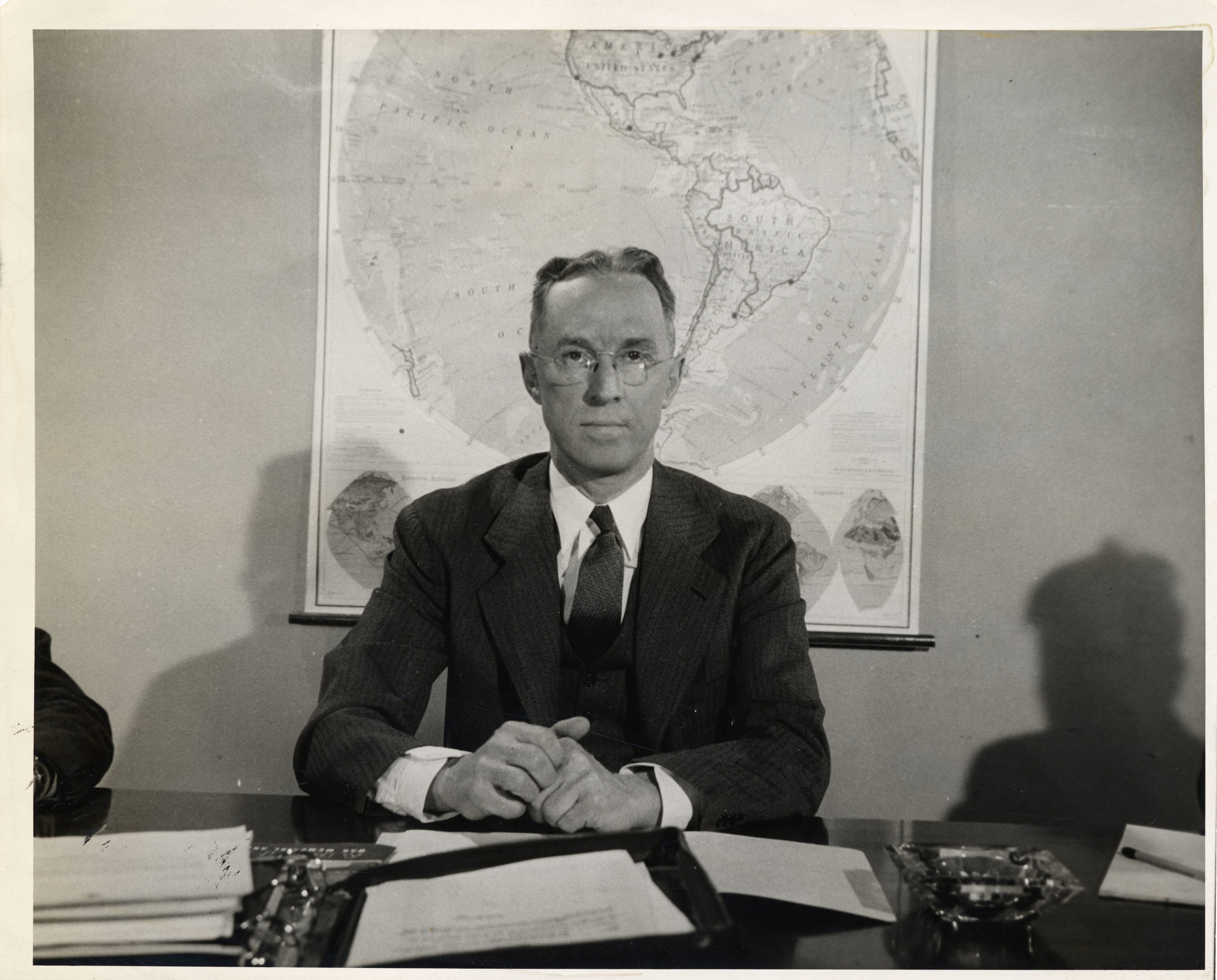
Join us for a new series of stories from the Center for Local History highlighting members of our community who made a difference in ways that helped shape our history and created positive change.
Their voices were not always loud, but what they said or did had a significant impact on our community.
Edmund Campbell
Edmund Douglas Campbell (1899–1995) was a lawyer, social activist, and Arlington County Board member who advocated for civil rights, school desegregation, and state representation according to population. Campbell vehemently opposed Virginia’s policy of “Massive Resistance” which occurred in the wake of the U.S. Supreme Court decisions in Brown v. Board of Education. In 1954 and 1955, along with his wife Elizabeth, Campbell fought to ensure that Arlington's public schools remain open by organizing the Save Our Schools Committee (comprised of parents and citizens from across Virginia) in defiance of Senator Harry F. Byrd and his allies.
Edmund Campbell sitting at his desk, date unknown
Among his other accomplishments, in 1955, Campbell won a case that overturned a Virginia law prohibiting racially integrated seating in public places. In 1958, following the closure of schools in Norfolk, Charlottesville, and Front Royal, he successfully argued as the lead attorney in James v. Almond, finally ending Virginia's “Massive Resistance" laws that had forced the closing of all public schools which Federal courts had ordered to integrate. Following that decision, the first Black students entered Stratford Junior High School on February 2, 1959.
In the lawsuit Davis v. Mann, the Supreme Court decided in 1964 that Campbell successfully argued that Arlington and Fairfax counties were illegally under-represented in the Virginia legislature, finding that legislative apportioning gave less populated rural areas more legislative influence per voter than more densely populated Northern Virginia as a result of the 1960 census.
In his memoir “Musings of a 95-Year-Old”, Campbell said, "I could not live with myself if I did not stand up publicly for what I knew was right."
Do you have a question about this story, or a personal experience to share?
Use this form to send a message to the Charlie Clark Center for Local History.
Center For Local History - Blog Post Message Form
Do you have a question about this story, or a personal experience to share? Use this form to send a message to the Center for Local History.
"*" indicates required fields
